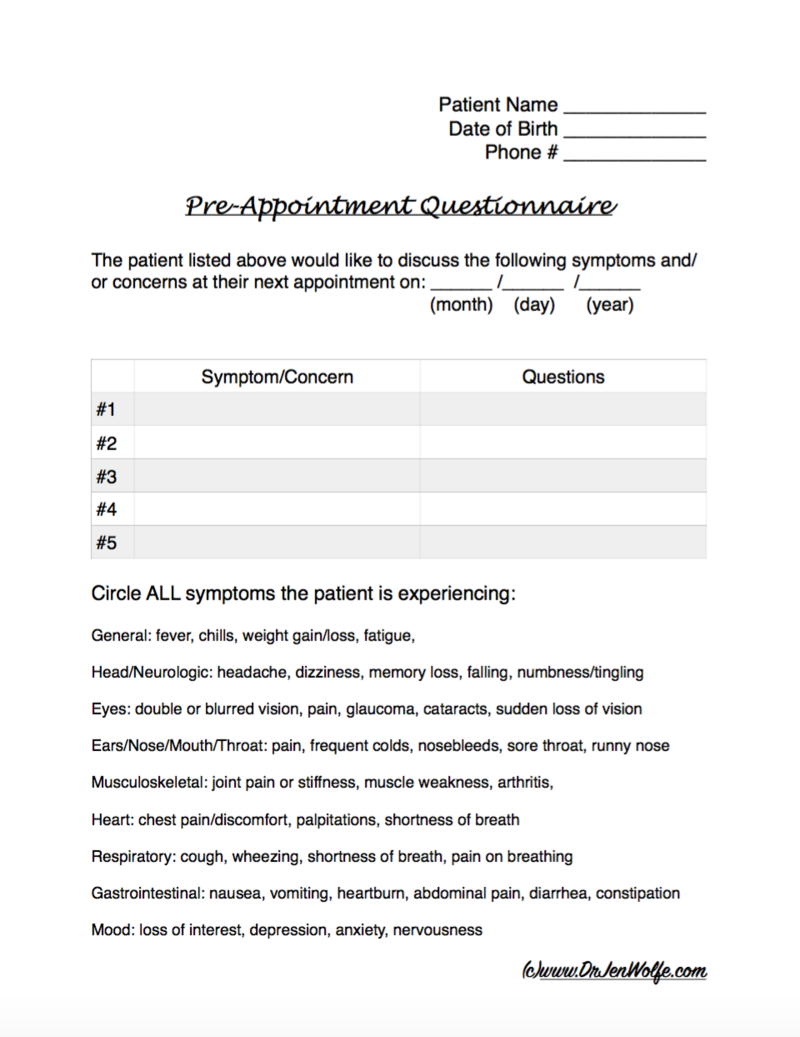The Secret to Making the Most of Each and Every Doctor's Appointment
It's winter. Colder weather means more people are getting sick, waiting rooms are more crowded, and additional strain is being placed on already overwhelmed physicians.
But, ask yourself, how often do you leave a doctor’s appointment either for you or your aging parent feeling like all of your problems were addressed and your questions were answered? Most likely your answer is never. In today’s healthcare system, it has become impossible for doctors to spend the necessary amount of time needed with each patient. There are now fewer primary care doctors than our nation needs, meaning doctors have more patients, and less time than ever before. As a result, doctors are forced to shorten appointments in order to see all their patients. PharmMD.com reported primary care physicians spend an average of only 7 minutes with each patient. So what can you do to make the most of each doctor’s appointment? Follow the steps below and utilize both the Pre-Appointment Questionnaire and the Appointment Checklist for a smooth visit.
 Step 1:
Step 1:
Use the Pre-Appointment Questionnaire to document your or your parent’s symptoms and/or concerns. Have you/they been feeling dizzy lately? Unusually tired, perhaps? Write down what symptoms or other medical concerns you have, and what questions you would like answered by the doctor about these concerns. If you have more symptoms/questions than space available on the form, please print multiple copies.
I have also included a comprehensive list of symptoms that may be of concern to the physician.
Please circle ALL symptoms you/your parent is experiencing even if you think the physician is already aware of them.
Additionally, make sure you make a copy for yourself once you’ve completed the questionnaire, so that you remember to address all of your concerns at the actual visit.
Step 2:
Next- fax, mail, or drop off the Pre-Appointment Questionnaire to the doctor’s office so they have it before the visit. Then the doctor will already know what concerns you have ahead of time, and can be prepared to answer the questions or order any necessary lab tests. If you can’t get it to the doctor’s office before the appointment, give the questionnaire to the receptionist to give to the doctor as soon as you arrive and check-in for your appointment.
Step 3:
Use the Appointment Checklist to document the answers to your questions from the Pre-Appointment Questionnaire. The checklist has space for the purpose of the visit, and if you don’t know why you/your parent has a visit, be sure to ask the doctor.
Next, after the doctor decides how to address each question/concern, document how they plan to solve it. Check off if they plan to refer your parent to a specialist, prescribe medication, or send them for a test or procedure. There is space to write down the name of the specialist and/or location for a test or procedure and how to make an appointment. If the doctor prescribed any new or refilled any medications, document this in the medication table. Many doctors will electronically prescribe medications directly to your pharmacy, and do not give you a paper copy. Even if this occurs, be sure to ask the doctor exactly which medications were sent to the pharmacy, the strength, directions, and reason you are taking each medication and document it in the medication table.
Lastly, there is a section for notes and a place to write down the date and time of your next appointment if needed.


Use these forms for each doctor’s appointment to ensure a smooth and productive visit, and to take control of your health. Lastly, be sure to bring a copy of your updated medication list.
Link to Download the Pre Appointment Questionnaire and Appointment Checklist: www.drjenwolfe.com/docs

